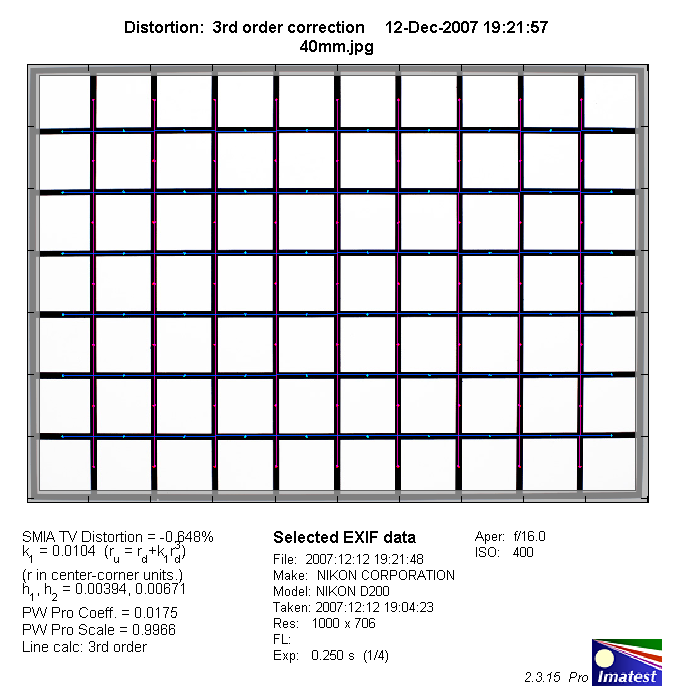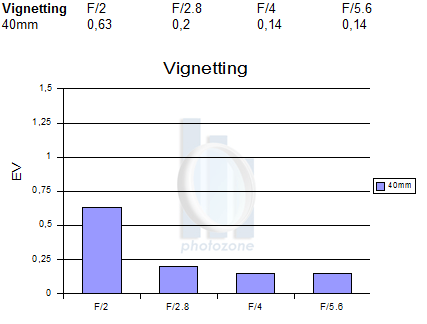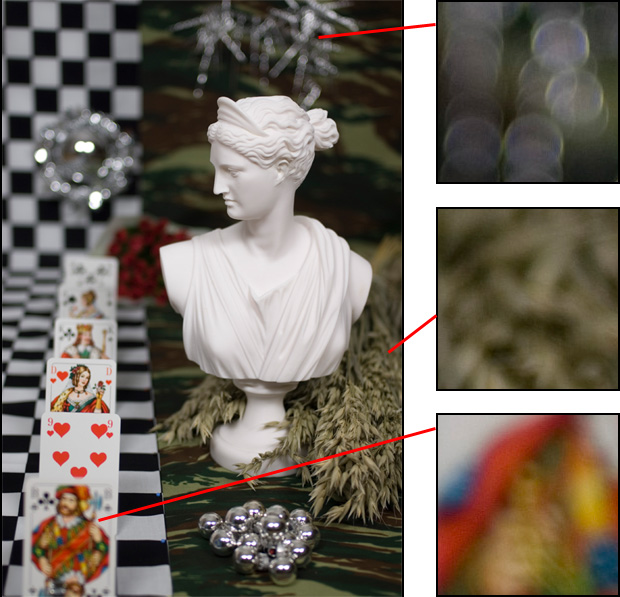|
Voigtlander Ultron 40mm f/2 SL II (Nikon mount) - Review / Test Report - Analysis |
|
Lens Reviews -
Nikon / Nikkor (APS-C)
|
|
Page 2 of 3
Distortion
The Ultron produces some mild barrel distortion (0.6%) which is usually nothing
to worry about in field conditions.

The chart above has a real-world size of about 120x80cm.
Vignetting
The 40mm f/2 is a full format lens thus enjoying a sweet spot advantage
on APS-C DSLRs. However, there's still a bit of vignetting visible at
f/2 (0.63EV) but it doesn't reach really disturbing levels. The problem is
negligible from f/2.8 onwards.

MTF (resolution)
The resolution figures produced by the Voigtlander are pretty impressive throughout
the tested aperture range. At f/2 the resolution is already very high both in the
center as well as the borders. At f/4 the center quality receives a boost into
extreme resolution territories - it surely exceeds the sensor resolution here
as well as at f/5.6. The border quality increases steadily from f/2 towards medium
aperture settings although it generally remains within very good(+) quality scope here.
Please note that the MTF results are not directly comparable across the different systems!
Below is a simplified summary of the formal findings. The chart shows line widths per picture height (LW/PH) which can be taken as a measure for sharpness.
If you want to know more about the MTF50 figures you may check out the corresponding Imatest Explanations
Chromatic Aberrations (CAs)
Chromatic aberrations (color shadows at harsh contrast transitions) are
slightly higher than average for a fix-focal length lens in this class.
The CAs aren't extreme but at around ~0.8px on the average at the image
borders they aren't totally negligible either.

Bokeh
Voigtlander lenses have quite a reputation when it comes to the
quality of the bokeh - the rendering of the out-of-focus zones. Unfortunately
the Ultron is a bit of a exception to the rule here. Out-of-focus highlights
are pretty circular but at f/2 they have a bright, outlined perimeter. Fine structured,
high contrast objects can appear rather "nervous" here - see e.g. the first card in
the foreground of the bokeh stress test scene below. You may also check out
some of the scenes shot at f/2 in the sample image section. The silver balls in
the foreground show a bit of purple fringing but this is a comparatively mild
effect for an f/2 lens. Stopping down improves the bokeh quite a bit (marginal
outlining, smoother transitions) but regarding the focal length most users have
probably a priority on the max. aperture setting.

You can download the full-size sample images here:
f/2 and f/4
|